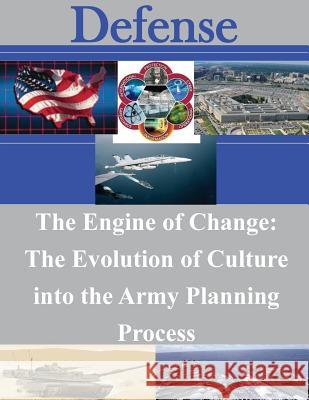The Engine of Change: The Evolution of Culture into the Army Planning Process » książka
The Engine of Change: The Evolution of Culture into the Army Planning Process
ISBN-13: 9781500878405 / Angielski / Miękka / 2014 / 54 str.
The human domain and culture have always been a consideration in military operations. Throughout the Army's history, commanders have learned this aspect of war, adapting and integrating their operational plans in order to address various disparities in cultural norms. Yet during the period after Vietnam, the United States Army as an institution neither recognized nor prepared requisite organizational and doctrine as a means to address the considerations. It instead focused on preparing for state-on-state, high intensity warfare. After the Cold War however, the Army found itself unprepared for the human domain in conflicts such as military operations other than war (MOOTW) and low intensity conflicts (LIC). The chasm between the need to understand the human domain verses the capability was exacerbated at the dawn of the twenty-first century as the Army found itself entrenched in wars among the people in Afghanistan and Iraq. By this point, the U.S. Congress demanded the military take action to become more culturally astute, launching the Army to begin to transform its doctrine. In order to demonstrate the operational shift, this research attempts to illustrate how the U.S. Army has subsequently identified several doctrinal considerations since the end of the Cold War referred to as the "engine of change" by General David Petraeus, enabling the broader force to develop necessary mechanisms for addressing cultural-related issues in the operational planning process.
Zawartość książki może nie spełniać oczekiwań – reklamacje nie obejmują treści, która mogła nie być redakcyjnie ani merytorycznie opracowana.











